Papua New Guinea’s ‘road to nowhere’ a stark sign of China’s influence in the Pacific
As Xi Jinping lands in Papua New Guinea, a new highway built with Chinese money is raising concerns about Beijing’s influence in Australia’s backyard.
There’s no doubt it’s an impressive, if short, stretch of asphalt.
About a kilometre in length, it is several hundred metres wide and features six lanes, two footpaths, three sets of traffic lights and five “nature parks”.
On Friday, to coincide with the first day of the 2018 Asia Pacific Economic Co-operation (APEC) summit, Chinese President Xi Jinping formally opened Independence Boulevard in Papua New Guinea’s capital of Port Moresby.
Paid for with Chinese cash, the $16 million avenue grandly stretches away from the country’s parliament building but then splutters to a halt a little way down the hill at a local road.
For its critics, that’s a big problem. They have dubbed the bulbous boulevard a “road to nowhere” and a sign of China’s growing sway on Australia’s doorstep.
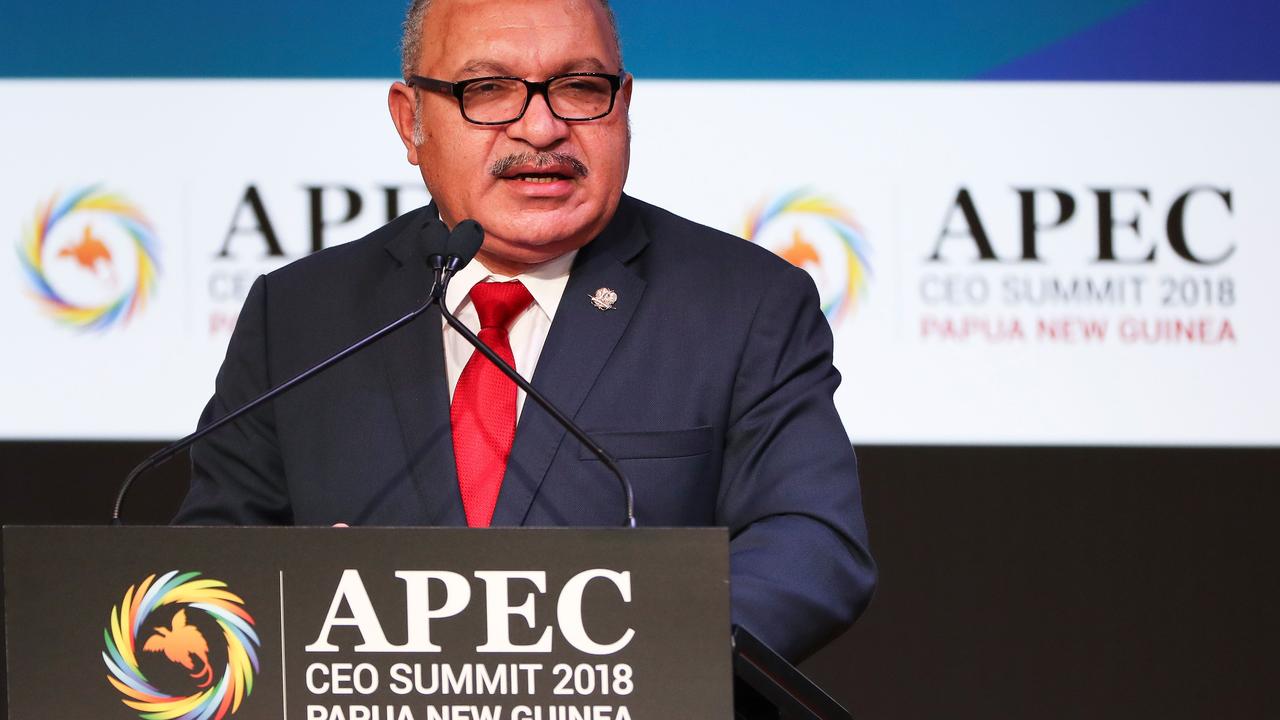
Make no mistake, the summit is a big deal for Papua New Guinea (PNG), APEC’s poorest member. As well as China and Australia, the grouping of 21 Pacific nations also includes Japan, New Zealand and the United States.
The economic and political pow wow is the first major event of its kind the nation has held. The government has been desperate to show off Port Moresby at its best and it’s pulled in a few favours to make it happen.
Australia has splurged $100 million on military and police assistance for the summit in its former colony.
Some APEC expenditure has raised eyebrows, however. Such as the 40 Maserati cars costing at least $200,000 each, which will be used to ferry around world leaders. This in a country when the average wage is only around $3000 a year.
But the country’s prime minister Peter O’Neill has defended the Chinese funded Independence Boulevard, as well as Beijing’s bankrolling of a refurbished convention centre and a widening of a motorway that connects the CBD to parliament, and said “China is biggest supporter of our country”.
“The Poreporena Freeway and Independence Boulevard will be the main focus of APEC. These roads and the convention centre will be used by our leaders and ministers and visitors arriving for APEC, but Papua New Guineans will use these facilities for decades to come,” Mr O’Neill said in April on local EMTV.
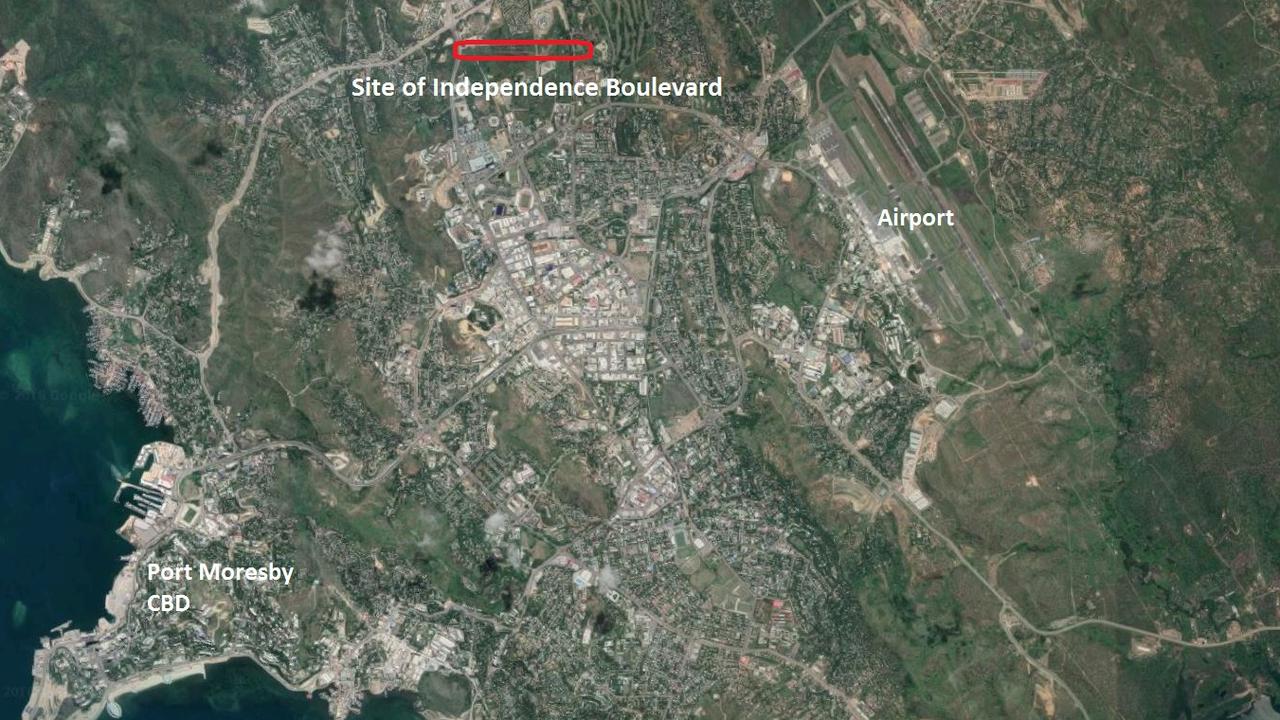
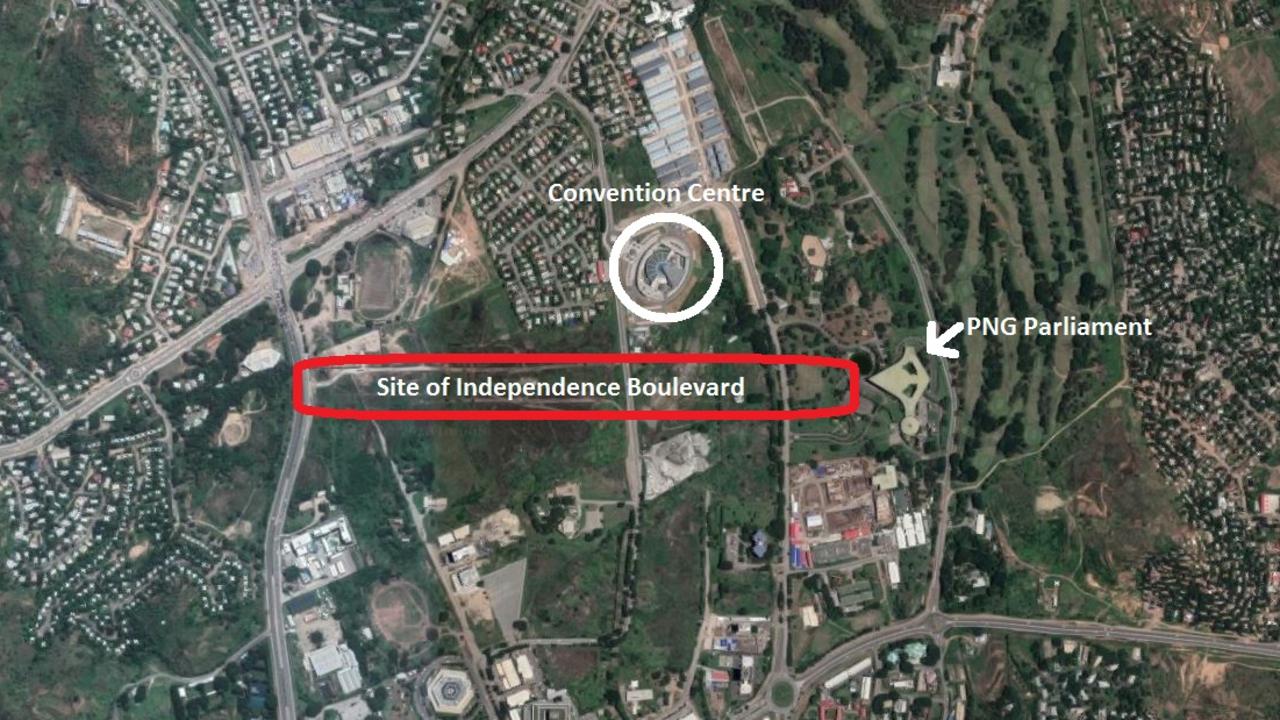
‘ROAD TO NOWHERE’
Others are not convinced ordinary folk will get much use out of the road. Governor of PNG’s Oro Province Gary Juffa said the infrastructure largesse was “for the Chinese government, and their business and entities.”
Mr Juffa told the Australianthat while Independence Boulevard was “a perfectly good road … it doesn’t go anywhere, who knows why they built it.”
The governor of East Sepik province Allan Bird had similar reservations and said the shiny new road had little practical benefit.
“Whatever the Chinese government spent on it, it could have been better spent somewhere else, buying medicine or building a school,” Mr Bird told Reuters.
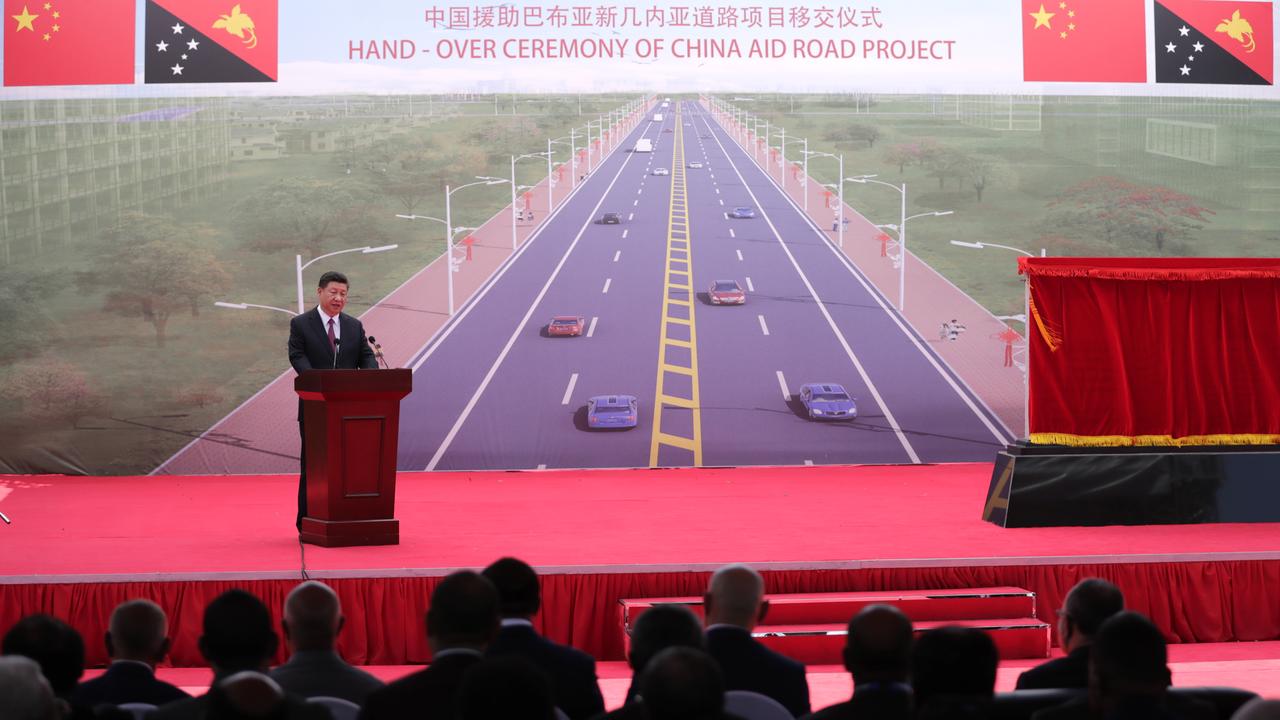
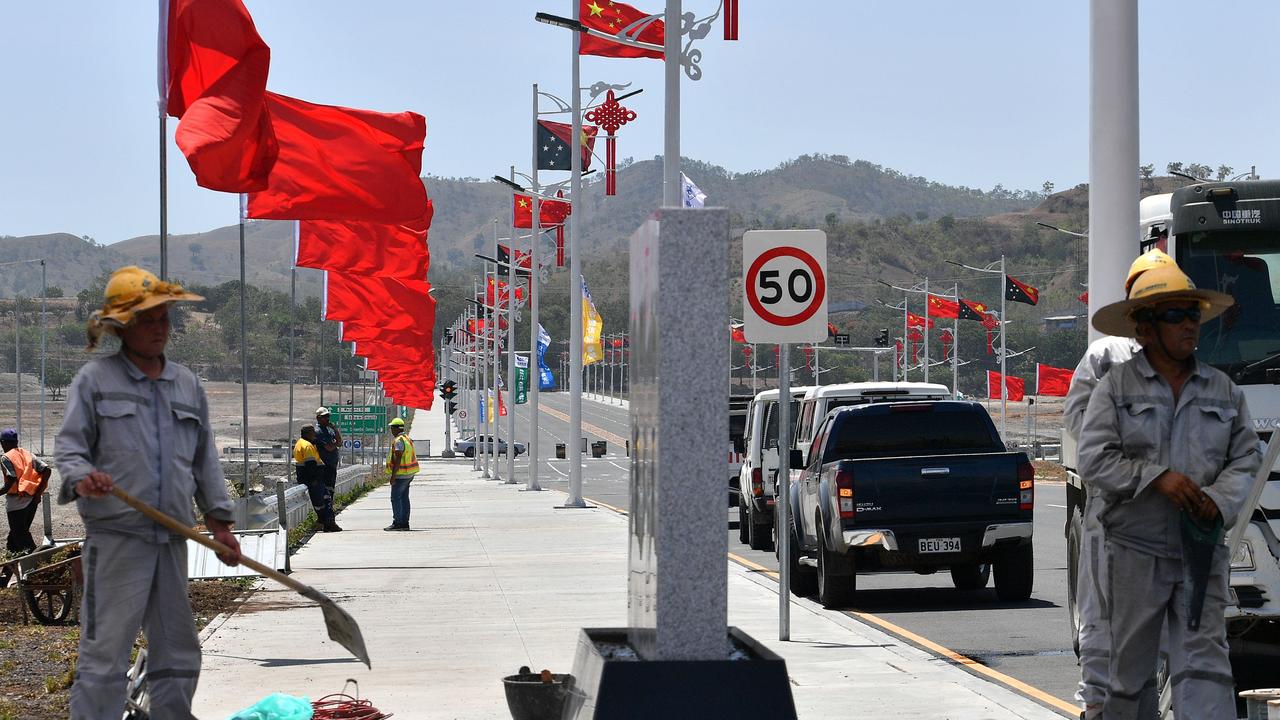
BEIJING’S PACIFIC CASH SPLASH
It’s by no means the first time Beijing has splashed its cash around the South Pacific. There’s much to play for including the loyalty of island nations many of which have officially recognised Taiwan as an independent nation, something China hates.
But for some small nations, it’s now payback time.
China funnelled around $160 million into Tonga to help rebuild the capital’s CBD after riots in 2008. Tonga is now struggling to pay back the loans that amount to almost a third of the country’s gross domestic product.
Vanuatu was loaned $120 million to build what is thought to be the longest wharf in the region that can handle cruise and container ships — and potentially war ships.
In April, the Vanuatu government said rumours China wanted to use its new wharf as a permanent military base were “speculative”.
Some have accused China of engaging in so-called “debt-trap diplomacy”. Essentially, loaning nations huge amounts of money which they then find difficult to repay which in turn gives Beijing a say over a country’s affairs.
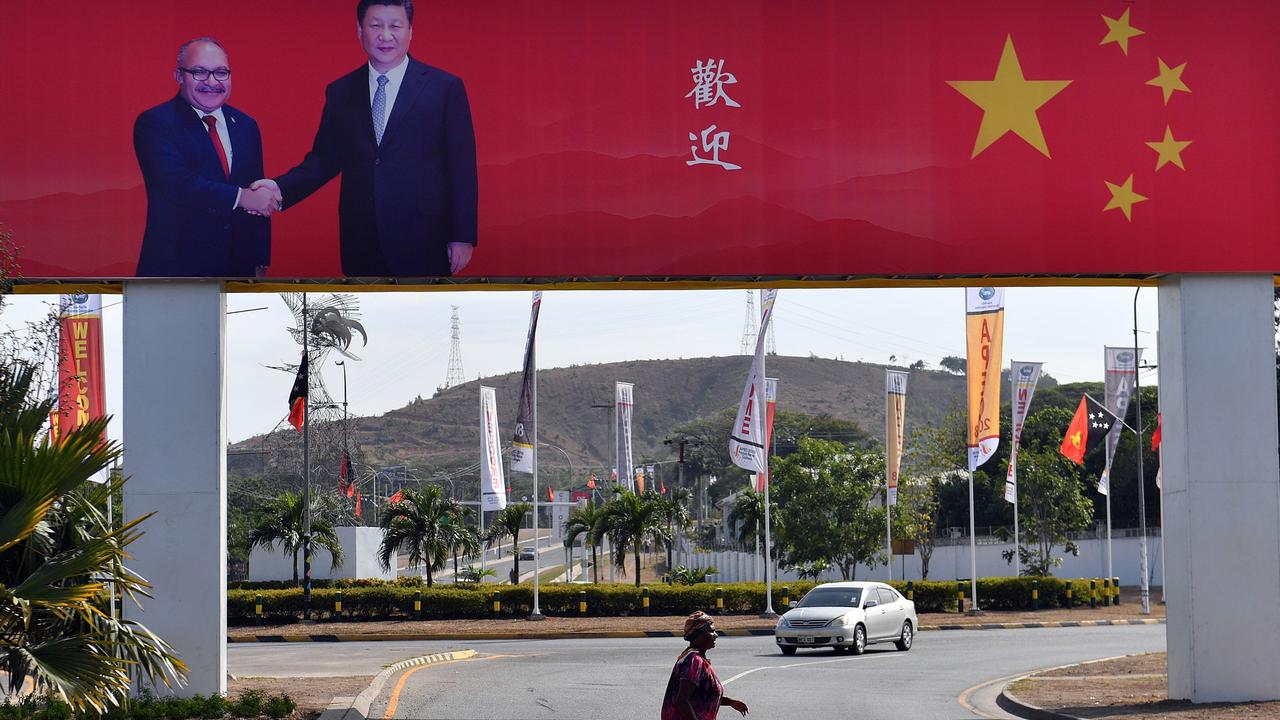
SRI LANKA’S EXPERIENCE WITH CHINA
China’s actions in Sri Lanka haven’t calmed these concerns. There the government ended up owing Beijing $4 billion for a new port which has so far been a flop. When the country couldn’t cough up the repayments, China took over a majority shareholding in the port. Some fear it could be developed into a Chinese military outpost close to regional rival India.
Charles Darwin University business law senior lecturer John Garrick said while China’s investment in the Pacific was still behind Australia’s, it is growing.
A Reuters analysis of 11 South Pacific nations said Chinese lending had gone from practically nothing to over $1.3 billion in a decade.
“The credit Chinese state banks are extending to impoverished developing nations looks a lot like a form of ‘debt colonialism’. The fear is that China is using the loans as leverage to expand its military footprint,” Mr Garrick told The Conversation.
“China’s ‘soft power’ is being better resourced to influence foreign nations. Its moves in the Pacific means the geopolitics of the region are hardening up.”
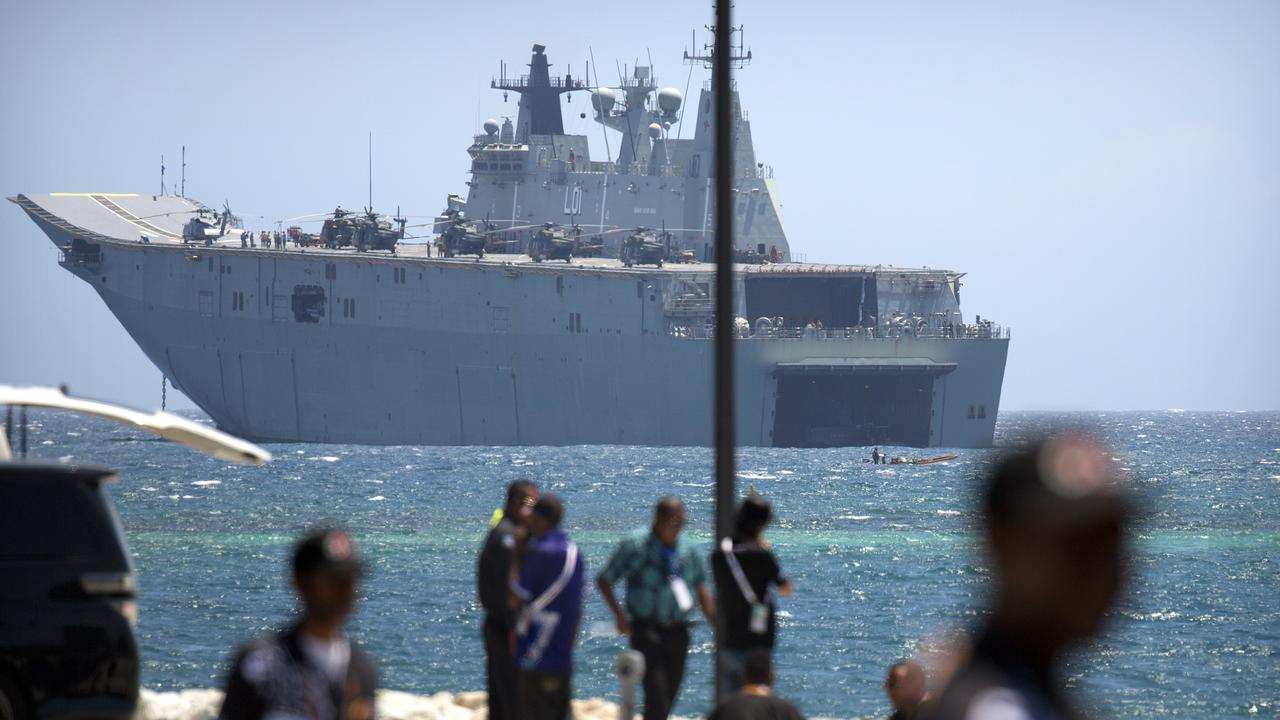
CHINA: ‘CONSPIRACY’
China has said its overseas investments boost social and economic development. The Global Times, a mouthpiece for the Communist party, has denied the country has lured countries into debt traps. In June, it said such a “conspiracy” was Western “media hype”.
It said Sri Lanka’s port has “huge potential” and “China has been following the principle of achieving shared growth”.
Indeed, the nation has invested in other ports where no such debt diplomacy is suspected of being in play. In 2015, the Northern Territory quite happily leased the already-built Darwin Port to a private Chinese firm for $500 million. That company is actually struggling to pay for it, reports have said. However, it was a sale the US government complained about given the proximity to a nearby Australian base it uses.
PNG points out its brand new road is not paid for through loans. The Global Times said the funds were a “gift” from China.
But Port Moresby still has a huge tab with Beijing. At $800 million, PNG has the single largest debt to China in the South Pacific. Combined, the debt and “gifts” can bring influence in an area of strategic importance to China. While in PNG, President Jinping is particularly keen to meet leaders of smaller South Pacific nations.
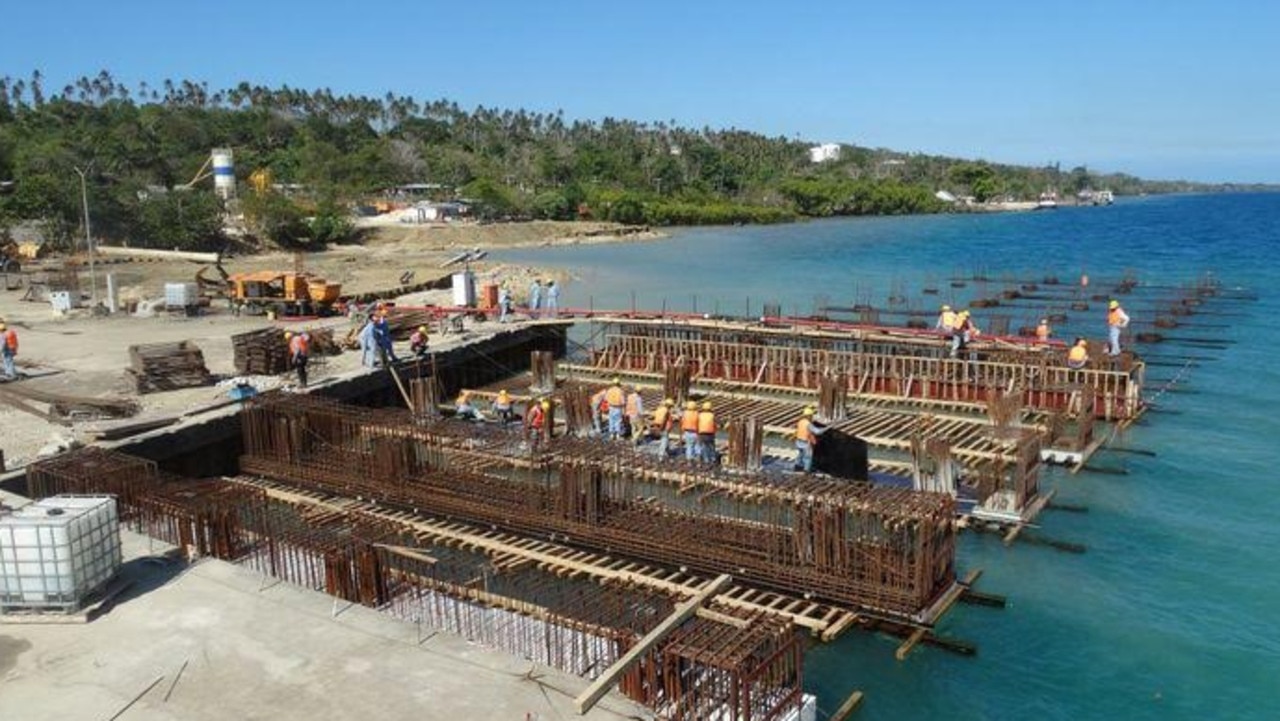
China’s investments have not gone unnoticed in Australia.
After Prime Minister O’Neill floated the idea of China funding a port on Manus Island, earlier this month Canberra hurriedly stumped up the cash instead fearful of China getting a toe hold so close to its shores. On Saturday, the US confirmed they too would set up shop on Manus.
Prime Minister Scott Morrison will no doubt sweep up Port Moresby’s Independence Boulevard to head to the summit.
As he does so, he may well marvel not at the three sets of traffic lights but if it really is a “road to nowhere” or a highway to Beijing doubling down on its influence over our northern neighbour. Australia may need to pay for some traffic lights itself.




